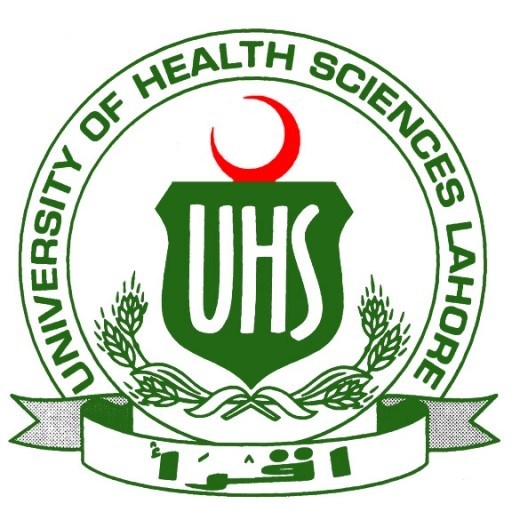Photos of university / #oxfordbrookes
Public Health at Oxford Brookes University offers a comprehensive and multidisciplinary program designed to equip students with the knowledge, skills, and practical experience necessary to address complex health issues at local, national, and global levels. This degree focuses on understanding the social, environmental, behavioral, and biological determinants of health and illness, preparing graduates to work effectively in diverse settings such as healthcare organizations, government agencies, non-governmental organizations, and research institutions. The curriculum covers core topics including epidemiology, health promotion, policy development, health economics, research methods, and the management of public health programs. Throughout the course, students engage with real-world challenges through practical assignments, case studies, and placements, fostering critical thinking and problem-solving abilities. The program emphasizes evidence-based practice, interdisciplinary collaboration, and culturally sensitive approaches to health, ensuring graduates are well-prepared for roles in developing and implementing effective public health strategies. Students benefit from access to state-of-the-art facilities, experienced faculty with expertise across a broad range of public health disciplines, and opportunities to participate in research projects and community engagement initiatives. The course also offers pathways for further study, including research opportunities and professional development. Upon successful completion, graduates will be equipped to contribute meaningfully to improving health outcomes, reducing health inequalities, and promoting sustainable health policies. Whether seeking to work in health education, policy analysis, epidemiology, or health advocacy, students will find this program provides a solid foundation for a rewarding career dedicated to enhancing public health and well-being worldwide.
The Bachelor of Science (BSc) in Public Health at Oxford Brookes University is a comprehensive programme designed to equip students with a thorough understanding of the fundamental principles and practices of public health. Throughout the course, students explore a wide range of topics including epidemiology, health promotion, disease prevention, health policy, and global health issues. The programme emphasizes the development of critical thinking and analytical skills necessary to address complex health challenges faced by populations today.
Students will engage with theoretical frameworks and practical applications, gaining insights into how health services are delivered and managed across different settings. The curriculum integrates core modules such as Biological and Social Determinants of Health, Research Methods, and Public Health Policy, alongside specialized areas like Infectious Disease Control, Environmental Health, and Mental Health. This multidisciplinary approach allows students to understand the interconnectedness of health determinants and the impact of social, economic, and environmental factors on health outcomes.
The programme also offers opportunities for real-world experience through work placements and collaboration with local health authorities and organizations. These practical elements enable students to apply their knowledge in real-world settings, develop professional skills, and build valuable networks within the public health sector. Additionally, students will learn about the importance of evidence-based practice, ethical considerations, and effective communication skills tailored to diverse populations.
Graduate students of this programme will be well-prepared for careers in public health policy, health promotion, research, and community health initiatives, both within the UK and internationally. The curriculum is designed to foster an understanding of current global health challenges, such as communicable diseases, non-communicable diseases, and health inequalities, as well as strategies to address them through innovative and sustainable solutions. Overall, the BSc in Public Health at Oxford Brookes University provides a rigorous and dynamic education that prepares students to make a meaningful difference in improving health and wellbeing worldwide.
Programme Requirements: Applicants to the BSc (Hons) Public Health programme at Oxford Brookes University are expected to hold a minimum of 112 UCAS tariff points from at least two A-levels or equivalent qualifications. We welcome applicants from a range of educational backgrounds, including those with vocational qualifications, access to higher education diplomas, or relevant work experience. All applicants are required to demonstrate proficiency in English language; non-native speakers must meet the University's English language requirements, typically an IELTS score of 6.0 or equivalent. Additionally, prior experience or an interest in health-related fields is advantageous but not compulsory. The selection process may include an interview or personal statement to assess motivation and commitment to the field of public health. It is recommended that applicants have a good level of numeracy and communication skills, as the programme involves analysis of data and collaboration. For international students, specific country qualifications will be considered to ensure equivalency. The programme encourages applicants who are passionate about improving health outcomes and addressing health inequalities through policy, research, and practice. Moreover, the university values diverse perspectives and real-world experiences, considering these as beneficial to the learning environment. Candidates should ensure that they meet all entry criteria before applying and prepare relevant documentation such as academic transcripts and a personal statement outlining their interest in public health.
The Master of Public Health (MPH) program at Oxford Brookes University offers a range of financing options designed to support students throughout their studies. Tuition fees for international and domestic students vary, with detailed information available on the university's official website. Prospective students are advised to check the current fee structure, as it is subject to annual updates. In addition to tuition fees, students should consider additional costs, such as registration fees, textbooks, supplies, and living expenses, which may vary depending on individual circumstances and location. Oxford Brookes University provides several funding opportunities to facilitate access to the program. These include scholarships, bursaries, and grants awarded based on academic merit or financial need. Specific scholarships relevant to public health students may have their own eligibility criteria and application procedures, so applicants should review these carefully and apply early. The university also participates in government funding schemes and loan programs available to eligible students, such as loans from the UK government for English students and other financial aid options for international students. For students from the UK, there may be access to student loans through the Student Loan Company, which can cover tuition fees and living costs. International students are often encouraged to explore external funding sources, including scholarships from their home governments or international organizations supporting health education. Additionally, part-time work opportunities are available on campus or nearby, allowing students to supplement their finances during their studies. The university provides financial guidance and support services to help students understand and navigate available funding options and manage their finances effectively throughout the program. Detailed information about all available funding opportunities, application deadlines, and eligibility requirements can be found on the Oxford Brookes University official website or by contacting their admissions and student finance offices. Planning your finances in advance is essential to ensure smooth progression through the program and to minimize financial stress. Students are advised to stay informed about any changes to funding policies or eligibility criteria, and to apply early to maximize their chances of securing financial support for their studies in public health at Oxford Brookes University.
The Public Health program at Oxford Brookes University offers students a comprehensive understanding of the key principles, policies, and practices involved in promoting health and well-being within populations. Designed to equip learners with both theoretical knowledge and practical skills, this program explores a wide range of topics including health promotion, epidemiology, statistics, public health policy, and environmental health. Students will have opportunities to develop critical thinking and analytical skills through case studies, research projects, and practical placements, preparing them for diverse careers in health services, government agencies, non-governmental organizations, and the private sector.
The program emphasizes a multidisciplinary approach, integrating perspectives from medicine, sociology, psychology, and environmental sciences to address complex health issues affecting communities. It aims to foster a worldwide understanding of global health challenges such as infectious diseases, non-communicable diseases, health inequalities, and the impact of social determinants on health outcomes. Students will engage with contemporary debates and policy developments, gaining insights into health systems and strategies for health improvement and disease prevention.
Academic content is delivered through lectures, seminars, workshops, and online modules, with an emphasis on active learning and student participation. The curriculum is designed to be flexible, accommodating part-time and full-time study options, as well as opportunities for online learning to cater to a diverse student body. Practicum placements and collaborations with local health organizations allow students to gain practical experience and build professional networks.
Graduates from the program are well-equipped for roles in public health practice, policy development, research, and education. They may work in areas such as health promotion campaigns, disease prevention programs, health consulting, or policymaking. The program also provides a solid foundation for those interested in pursuing further academic study, including master's or doctoral degrees in public health or related fields. The university's strong connections with health authorities and industry stakeholders ensure that students are exposed to real-world issues and current public health challenges, making the program highly relevant and valuable in today’s complex health landscape.









